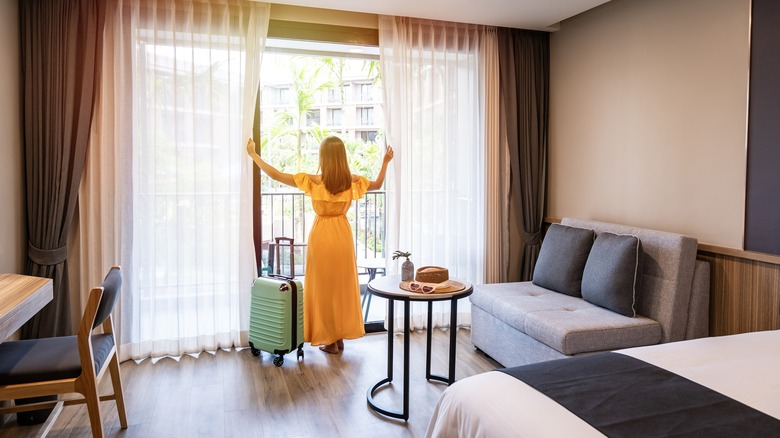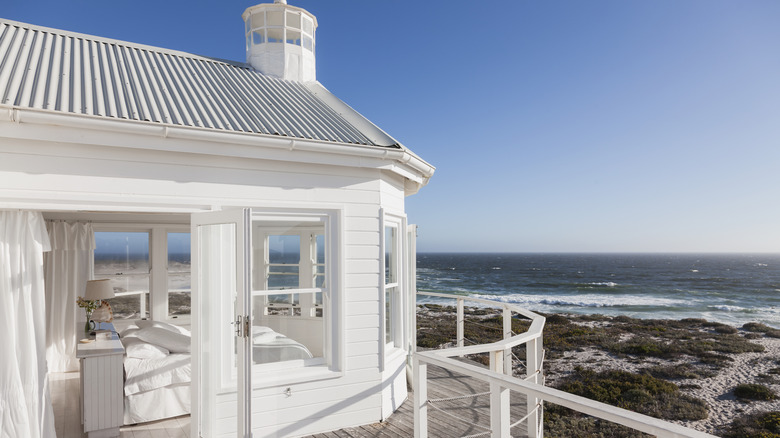Travel Guides Road Trips
Joshua Meyer
Vacations often take a lot of planning, from researching your destination to booking a flight and hotel room, and everything else in-between. Once you add in the price of meals and things like rental cars, it can also be quite expensive to travel, with the average cost of a three-day trip for just one person being almost $1,400, according to Forbes. If you’re bringing a whole family of four, you could be looking at over $3,600 just for three days.
Going into the summer of 2023, total consumer spending on travel showed a slight increase compared to the previous summer (per U.S. Travel Association). However, overseas travel was down and is still well below pre-pandemic levels, so the industry has yet to fully rebound. Depending on where you want to go, even travel destinations in America can be expensive if not outright cost-prohibitive.
As HuffPost notes, recession fears may also have people thinking twice about planning a vacation at the moment, which is why some recommend foregoing a traditional vacation and taking a “nearcation” instead. So, what exactly is a nearcation and how is it different from a staycation?
The difference between a nearcation and staycation

kitzcorner/Shutterstock
In a conventional staycation, you would usually sleep at home in your own bed and venture out to nearby places during the daytime. You might even do a day trip somewhere, but since you’re remaining close to home, there’s no need for a hotel room. You can stay where you live and enjoy seeing and doing things in the local vicinity.
This is a great option if you’re too busy during the work week to get out much. However, part of the fun of vacationing is escaping your usual surroundings. That’s a feeling you might not get with a staycation where you’re sleeping in the same bed you always do.
This is where the concept of a nearcation comes in. A nearcation is similar to a staycation in that you’re sticking close to home, with the crucial difference being that you would actually book a hotel or B&B somewhere. Definitions of what constitutes a true nearcation may vary, but some travel experts say that it would involve no more than a one- or two-hour drive and a few days away from home.
This isn’t the kind of trip where you’re going to be hopping on a plane or passing through immigration and customs to a foreign country. With a nearcation, the usual stress of travel and need for a buffer day after your next vacation might give way to a simple weekend getaway.
The benefit of a nearcation

Astronaut Images/Getty Images
If you live in or around a big city, there might be pockets of that city you’ve never explored or lesser-known spots that would appeal to history buffs. Even your hometown might have places you’ve overlooked. It’s easy to take for granted sometimes what’s right under your nose in terms of interesting local sights.
As you come up with a loose plan for your nearcation, try researching your local region, the same way you would research a more far-flung destination before visiting. Approach it with fresh eyes, as an outside visitor to the region would, and you might come away with a newfound appreciation for some new area nearby and the local heritage in your home state.
HuffPost recommends asking family and friends or even Facebook groups for ideas on where to go. In the process, you could discover new restaurants or off-the-beaten-path places that you never knew about. Since you’ll be saving on transportation costs, splurging on a nice hotel or even renting a cabin or beach house could go a long way toward giving you that much-needed feeling of escape from your normal everyday life. Wherever you go, just be sure you’re getting a break from the norm and experiencing something new and different with your nearcation.

